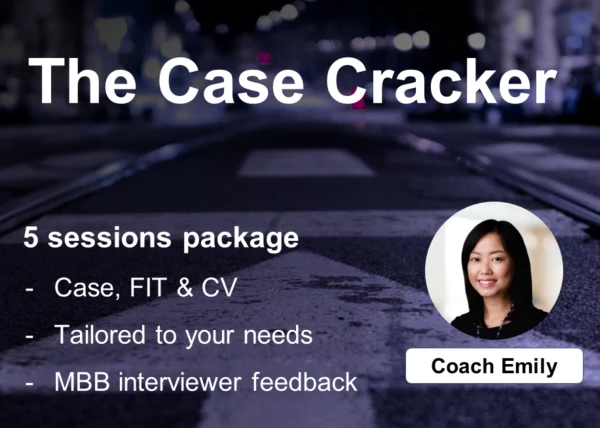Hi all, will it be stronger hypotheses to say, my initial hypothesis the client can achieve 20% reduction on cost with small improvement in revenue? I just read you can use %, even if you don't know as it it just hypothesis that can be prove or disprove, but it gives the candidate better edge in securing an offer

Can hypothesis be quantified e.g., 20%?


Hi there,
Unless the case prompt has given very specific info, I would be cautious with using an exact number in the hypo. It is better to qualify the numbers - e.g., say "likely X-Y %", "[at least] X% or more", "probably around X% for instance", or just use words like "considerable / significant / etc.".
As an interviewer, I would be wondering where the exact number comes from (if it is not given in the prompt), and I probably don't want to run the risk of working with someone who might make up numbers from thin air in a consulting project.
Best,
Emily

Hello! I agree with Emily that throwing out an exact number without a basis can raise questions.... That said, if you do choose to use a number because you feel more comfortable to do so, it’s stronger if you quickly explain the rough logic or benchmark behind it (e.g., “Based on similar cost-optimization programs I’ve seen in the industry, I’d expect something in the 15–20% range....").
That way you’re not making numbers up from thin air but showing structured thinking, awareness of context, and the ability to set a target that can then be tested in the case :)

Unless you have supporting evidence for it, I would never launch a hypthesis at the start of the case.
If you're doing that, you have likely read it from Victor Cheng materials from more than a decade ago. I wouldn't recommend it.
And trying to make that hypothesis even more precise by quantifying it, when you have really nothing to support it, in fact only makes the performance weaker.
You should only communicate a hypothesis when you have something that supports it. Try to think how client work is also conducted.
Best,
Cristian

Hi there!
I would strongly advise against stating a specific number unless they are specifically asking for one.
Transfer this into the real world for a second: The person interviewing you will be used to spending weeks / months on an engagement at the end of which, they will be providing a range for the improvement potential the project has identified.
Based on a case prompt to state: "They can achieve 20% revenue growth". You are running a high risk of a negative reaction, i.e., "where is that number coming from?"
Happy to connect live if helpful!
Cheers,
Andreas

